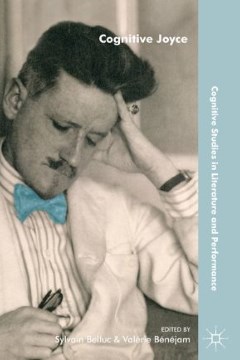Book | Chapter
Authors' libraries and the extended mind
the case of Joyce's books
pp. 65-82
Abstract
After having focused on "epiphanies" in the first stages of his career, Joyce gradually developed other literary methods for evoking the workings of the fictional mind, methods that presage a post-Cartesian approach to cognition. This essay examines (1) to what extent Joyce's evocations of the fictional mind can be understood from the perspective of this post-Cartesian paradigm, and (2) how his reading notes may have been instrumental in the gradual transition from the "epiphany" model to a model that prefigures the extended mind thesis. This investigation involves both the workings of the writer's mind (as reflected in notes and manuscripts) and the evocation of characters' minds. The two case studies are Joyce's reading of books by Sir Robert Ball and Otto Weininger.
Publication details
Published in:
Belluc Sylvain, Bénéjam Valérie (2018) Cognitive Joyce. Dordrecht, Springer.
Pages: 65-82
DOI: 10.1007/978-3-319-71994-8_4
Full citation:
van Hulle Dirk (2018) „Authors' libraries and the extended mind: the case of Joyce's books“, In: S. Belluc & V. Bénéjam (eds.), Cognitive Joyce, Dordrecht, Springer, 65–82.


